Value Realism and Idiosyncrasy, and Also What Nietzsche Does

Interview by Richard Marshall

'It’s not really a problem for someone to fail to be able to see the value in classical music, for instance—though we can say that they’re missing out on something, something genuinely good, if so. But there seems to be something distinctively wrong with someone who fails to be able to see what’s good about, for instance, respecting the dignity of other human beings. This sort of thing seems like it might be a demand made of everyone; there’s not obviously space for idiosyncrasy here. And if that’s right, there’s an important difference in the structure of value that tolerates idiosyncrasy as opposed to value that doesn’t, value that makes demands of everyone.'
'Freedom seems to require an infinite sequence of free choices stretching backwards from the action in question, and this is obviously impossible. Strawson concludes from this that we don’t have free will. I think that Nietzsche, however, would say that Strawson has misunderstood what his own argument shows. What it shows is that the notion of ‘freedom’ that requires an infinite chain of free choices stretching backwards is ultimately not coherent.'
'For me, the most interesting aspect of Nietzsche’s philosophical approach is the way he strives to capture philosophical concepts—freedom, morality, and so on—as the real, complex, concrete, human phenomena they are. He has no time for metaphysical abstractions or definitions, or even arguments really; he forces us to look at what’s right in front of us. It’s a sort of anti-philosophical orientation in a way (I definitely see shades of Wittgenstein in him). And while I certainly don’t have a fully worked out account of what genealogy is for Nietzsche, I think this is a big part of it.'
Claire Kirwin is concerned with the nature of value, broadly construed, and the nature of our relationship to it as minded creatures. This motivates her interest in a set of questions situated within ethics, metaethics, aesthetics, moral psychology and moral epistemology, and the philosophy of mind and her interest in a number of figures from the history of philosophy, especially Plato, Kant, and Nietzsche. Here she discussesvalue realism and anti-realism, 3rd person vs 1st person distinctions, naturalism and anti-realism, the phenomenon of idiosyncrasy, why realism shouldn't back down in the face of it, broad pluralism, the comprehensiveness of realism, value expertise, Nietzsche and anti-realism and freewill, whether Nietzsche uses Charles Stevenson's tactic of “persuasive definitions", Nietzsche, genealogy and debunking the genetic fallacy argument.

3:16: What made you become a philosopher?
Claire Kirwin: I wanted to study maths at university, but doing maths all day seemed like it might be quite hard work. I wanted to do something else on the side, something ‘fun’ and ‘easy’, and having no real idea of what philosophy was, I was under the impression that it would fit the bill. So I decided to study maths and philosophy.
Philosophy at Oxford was primarily what is called ‘analytic’ philosophy, and I found it at first kind of frustrating. It seemed like philosophers were trying to do maths—trying to create proofs for theorems, or something like it—but with the wrong tools. In maths, a symbol used in a proof always has a clear and well-defined meaning; we make sure of that before we begin. But the concepts we use in philosophy aren’t like that. They’re borrowed from everyday life, and as a result they’re much more slippery and amorphous than mathematical terms. In everyday life, words are used for jokes and metaphors and instructions as well as for assertions, and their meaning shifts and changes from context to context. And so these borrowed words—‘freedom’, ‘good’, ‘real’, ‘existence’, ‘value’, ‘property’, ‘meaning’—did not seem to me suitable for the sort of quasi-mathematical manipulation that philosophers were seeking to do with them. The idea was presumably that with enough clarifications and distinctions, we’d manage to whittle the words down into well-defined units, appropriate building blocks for a proof. This struck me as misguided in a couple of ways. First, I was doubtful that these slippery creatures could really be made to work like that. But second, it seemed to me that if we succeeded in such an attempt, we would in doing so have whittled all the life out of the very things we were interested in. Concepts like ‘good’, or ‘freedom’, seemed to me important in part because of the way they point beyond our current understanding, beyond our attempts to define, towards real things, things that matter. And it was the stuff that mattered that I wanted to try to talk about, even if I wasn’t able, just then, to say clearly what exactly any of it was.
The vague desire to talk about ‘stuff that mattered’ led me towards so-called ‘Continental’ philosophy. I wanted to read Nietzsche, because Nietzsche sounded cool, and I thought I could do some good all-black outfits to accompany my reading. I found him to be an intriguing and provocative interlocutor—irreverent, darkly comic, cuttingly insightful. It soon became clear to me, however, that some really interesting parts of Nietzsche’s thought were engaged with parts of the history of philosophy about which I had no knowledge. Schopenhauer was a crucial early influence on Nietzsche, for instance, and Schopenhauer’s philosophy is grounded on ideas he finds in “the divine Plato” and “the marvelous Kant”. So I worked my way backwards, reading Kant and eventually Plato. I found Plato rather frustrating at first—or perhaps I should say it was Socrates I was reacting to: so irritating, with his smug manner and his little arguments that weren’t very good! ‘Isn’t this how it is with horses? And so mustn’t it be the same with humans too?’ No! And then a few pages later, he’d tell off an interlocutor for making just the same kind of mistake! Eventually, I realized that I was supposed to be getting wound up, and that something about Plato’s writing was genuinely succeeding at making me think. And just as I had wanted to move beyond philosophy as quasi-mathematical manipulation of linguistic objects, to try to think about ‘stuff that mattered’, I felt that Plato—perhaps striving beyond the Socratic fascination with definition—was trying to talk about, or anyway to point towards, the real things themselves.
Both Plato and Nietzsche are deeply interested in the power—and the danger—of myth-making, of art, of stories, of literature, of metaphors. This is at least part of the explanation for the distinctive styles and modes of writing that each has chosen. And reading these two authors, I started to get a sense of an alternate picture for what philosophy could be. Philosophy, I started to think, doesn’t need to take maths as its model. Rather, perhaps, it could attempt to do something like what art tries to do. And what is that? Well, something like this: art, and philosophy that follows in the footsteps of art, tries to get you to see something. Perhaps it is even just something that was already right in front of you, but that you missed, somehow. And with this sort of picture of philosophy in view, I started to think that perhaps I might like to try to be a philosopher.
3:16: You’ve recently written about value realism and anti-realism. For the uninitiated in this debate, what are the key claims and best arguments being made by the anti-realists because they’re the ones you take issue with aren’t they – from those who think value is as real as unicorns are to those like Korsgaard who deny realism in order to preserve it?
CEK: I do take issue with them, yes, but I should say that I used to be an anti-realist myself. So I can tell you what I thought, and why. What I thought was: of course there are people, and people go around desiring things and valuing things, and making decisions about their lives on the basis of these various desires and values. That’s all perfectly fine; that’s just what people do. But in and of itself, I thought, the universe doesn’t actually contain any value-stuff. I mean, why would it? Anyway, everything we might want to explain about human behavior can be explained just by pointing to the relevant psychological facts—the fact that people desire things or think them valuable. There’s no need to suppose that value is real, that it is ‘part of the furniture of the world’ or ‘part of the fabric of reality’, as it is variously put. The idea that, on top of people and their psychological attitudes, we might also posit this magic stuff—value—that they’re responding to struck me as just the sort of ontological excess for which Occam’s razor was sharpened.
At first, my anti-realism took a straightforwardly error-theoretic form: our ordinary evaluative talk involves a commitment to the idea that value is ‘out there’, I thought, and so our ordinary talk rests on an error. Over time, I started to see the appeal of some of the more ‘optimistic’ (as we might put it) forms of anti-realism. These are approaches that aim to salvage at least some of our evaluative talk or practices by having value derive, in some way, from those psychological facts about what people happen to desire or value. Value isn’t out there waiting to be discovered, but instead comes into being as a result of the particular desires or values we each happen to possess. As Sharon Street helpfully puts it, “things are valuable because we value them, and not the other way around”.
And so I started as a really hardcore error-theoretic anti-realist, and then tried out somewhat more conciliatory forms of anti-realism on which there is such a thing as value, but it’s just a function of people’s psychological attitudes, their desires and evaluative beliefs. Throughout, my foundational anti-realist conviction remained pretty stable: value isn’t really out there; to the extent that it exists at all, it’s really just (here one taps on one’s head) in here. People and their desirings and valuings are real, but value itself isn’t part of, you know, the upholstery of the cosmos. Or so, for a very long time, I supposed.
3:16:. Your response is to mobilize a (re)consideration of the sorts of psychological attitudes—desires, beliefs, judgments, intentions, and so on—that have typically served as the basis for the wide variety of anti-realist accounts of value isn’t it? Can you sketch for us your overall approach which is rather original isn’t it because rather than being a push back against arguments against realism you actually defend a positive argument for realism straight out, which is bold and rather rare these days isn’t it?
CEK: It’s been said several times that the realist is usually playing defense. There are all these various arguments marshalled against realism (I mentioned one above: the idea of value seems to be explanatorily idle in accounts of what happens, including those happenings that are human actions). And, typically, the realist spends her time trying to defend herself against these arguments. When I was a committed anti-realist, I’d seen these various attempts by realists to undercut the objections to their position, and none of these counterarguments really moved me at all. They all seemed rather desperate, somehow, and in any case none of them was giving me any positive reason to think that value existed.
Oddly, the piece of writing that made me change my mind and eventually embrace realism about value wasn’t an argument in support of realism. It wasn’t even something from within the metaethics literature. It was a book in the philosophy of mind about self-knowledge, and the special authority and immediacy with which we seem able to speak about our own mental contents: Authority and Estrangement, by Richard Moran. (Actually, I met him a few years ago, and told him that reading his book made me a hardcore value realist; he seemed a bit nonplussed by this fact, because that’s not at all what the book is about.) In a sense, what Moran’s book brought to my attention was this: all these ‘people’ who go around thinking things are valuable, when they aren’t really?—I’m one of them. I’m a person too. (This can be weirdly easy to lose sight of when you’re doing philosophy.) And when I started thinking about what it’s like to be on the inside like that—what it’s like from the first-person perspective, to be a person who thinks things are valuable and who makes decisions about what to do on the basis of those values, I realized that there was an important sense in which I couldn’t hold on to my anti-realism from within that perspective. I realized that I was in some sense already a realist.
3:16: What role does the ‘third person/first person perspective distinction’ play in making such attitudes seem ripe for anti-realist responses but which you think is a mistake? What do you mean when you talk about the first person perspective being ‘transparent’?
CEK: I said above that what I realized was that I was a person. More precisely, what I realized was that the conception of a person and her psychological attitudes that my anti-realism rested upon was in an important sense a picture taken from without, and the picture didn’t quite work when I tried to apply it from within the first-person perspective to my own psychological attitudes. The picture, as I’ve said, was something like this: people come equipped with all of their various psychological attitudes, including evaluative attitudes, as a matter of purely descriptive psychological fact. This matter of psychological fact is fully separate from questions about how things stand in the part of the world that the attitudes are about, including questions about what (if anything) is actually valuable. That’s why it’s fine for an anti-realist about value to accept the fact of these attitudes, and even to try to construct an account of value out of them.
The issue is that your own psychological attitudes, including your evaluative attitudes, are not for you first and foremost a matter of psychological fact about a person. You don’t find yourself equipped with a basket of beliefs, desires, normative judgments, and so on. In fact, to the extent that you do experience a particular attitude of yours in this way, as primarily a given psychological fact about you, to that extent, I think you’re experiencing the attitude in an alienated way, a third-personal sort of way. It’s not the ordinary first-personal form of attitude possession. In the ordinary first-personal case, you can no longer draw the sharp distinction between the matter of psychological fact and the question of how things stand in the part of the world that your attitude is about—because your attitude is your finding the world to be a certain way. Your evaluative judgment is your finding something in the world to be valuable; your desire is your finding something in the world to be desirable. Borrowing a usage from the philosophy of mind literature that originally inspired this argument, we can say that in the fully first-personal case your attitudes are “transparent” to the world. Rather than being opaque psychic objects that you have in your possession (‘in here’, tapping your head again), they are more like windows onto the world, something see-through, and seen through.
So when you stop thinking about ‘people’ and their psychological attitudes, and you move into the perspective that actually constitutes being a person and having attitudes, what you find is that you yourself are already going around finding things in the world to be valuable. You’re already, in some sense, a value realist.

3:16: Why aren’t you impressed by those who argue that anti-realism is the naturalistic approach—they have Hume and Kant, Quine and Churchland and that gang on your side—and that realists are therefore in the dark pre-Humean ages?
CEK: Well, I’m inclined to think that Kant would be a bit confused about being grouped with those guys. And in certain respects, actually, I think my work vibes with some aspects of Kantianism, although strangely perhaps more so with the theoretical work than with his moral philosophy. So let me try a response to that question that I think has something of a Kantian flavor.
What do we mean when we say that some theory or approach is ‘naturalistic’? Typically, it’s going to involve some reference to science, perhaps to the natural sciences in particular. And then the idea, presumably, is that the natural sciences tell us about electrons and supernovas and so on, but they don’t tell us anything about value, and so electrons and supernovas are therefore naturalistically kosher, but value isn’t. But forget about the content of scientific findings for a minute and look at the form of scientific enquiry. When we try to learn about the world through our scientific practices, we’re engaged in a fundamentally normative activity. The scientist, having gathered all her evidence, ought to believe the theory that best fits the evidence. This is not a point about what will happen, about what the scientist will in fact do. Perhaps she has biases of various kinds, or she really wants something else to be true, and as a result perhaps she won’t end up believing the theory that the evidence best supports. Whatever she actually goes on to believe is neither here nor there in relation to this normative point about what she ought to believe. What science aims to come up with are theories that have predictive power—theories that will tell us what will happen. But the practice itself, of trying to develop such theories, is premised on a structure that is not about what will happen but is instead about what ought to happen. The activity of scientific enquiry is itself a normatively structured one.
This is really only the very beginning of what would have to be a much longer argument, of course. But it suggests that it would be a mistake to think that a philosophy that is properly aligned with scientific practice would portray the world as a place devoid of any normative stuff, devoid of oughts. This would be a mistake because it fails to recognize the inherently normative nature of scientific practice itself—and indeed of all of our knowledge-seeking activities.
3:16: (Ha - not sure why I put Kant in with that crew back there either! Idiosyncrasy gone crazy!) Anyway, onwards: You’ve argued against the view of many that there are some parts of our lives that should not be understand in realist terms. Even many value realists agree with this. So what are these idiosyncratic choices and what are the reasons for even hard core realists to resist realist claims?
CEK: To be a realist, even a hardcore realist, all you have to believe is that there is some value that is ‘out there’. It’s fully compatible with realism, then, to think that there are some parts of our lives where our choices are properly guided not by value out in the world, but merely by our own particular preferences or desires—that is, to think that some parts of our lives are best understood on an anti-realist model. And this is, indeed, what most realists think. So, for instance, I really like peanut-butter-cup ice cream, and so, plausibly, I have reason to choose peanut-butter-cup ice cream for dessert. Most philosophers, including most realists, will want to say that what gives rise to this reason is not the inherent value possessed by peanut-butter-cup ice cream, but rather just the fact that I happen to have that particular preference. Indeed, most philosophers will find the idea that there might be inherent value in peanut-butter-cup ice cream to be kind of laughable. After all, plenty of people just don’t like peanut-butter-cup ice cream, and it seems like it would be mad for me to suggest that such people have gotten something wrong . This last point—the idea that it seems totally fine that I like one thing, and you like another, and we don’t want to say that this means that one of us has gone wrong—is what I call the phenomenon of idiosyncrasy.
There are plenty of parts of our lives where it seems that idiosyncrasy in our evaluative responses is totally normal, and doesn’t indicate anything amiss. And it’s (at least) in these properly idiosyncratic parts of life that philosophers will typically want to say that the ‘value’ that’s on the scene shouldn’t be understood in realist terms. In these idiosyncratic parts of life, it must be just your own particular preferences or desires or values that do the work. This is what most philosophers, including most realists, think. I don’t agree. I’m a realist even in these idiosyncratic areas: when I choose the peanut-butter-cup ice cream for dessert, I think that what’s happening is that I’m responding to a source of value out in the world—the objective tastiness, if you like, of peanut-butter-cup ice cream. (David Enoch recently told me that he’s glad that he’s no longer “the craziest realist on the scene.”)
3:16: Ha. So why are they wrong to give up the realist position even here? Is it again that they are being taken in by the third person stance?
CEK: I feel I ought to stress that I didn’t go into this project with a plan to defend the objectivity of the tastiness of peanut-butter-cup ice cream. It’s just where the arguments led me. But the arguments do seem to me to be correct.
Yes, the problem is that telling the anti-realist story about the tastiness of peanut-butter-cup ice cream once again relies on taking a perspective on your own psychological attitudes that is problematically third-personal. It’s based, again, on the idea that you come equipped with a basket of attitudes, as a matter of descriptive psychological fact; this psychological matter of fact is then the basis for the anti-realist model of value in these idiosyncratic areas. But that isn’t what it’s like, actually, to be a person with attitudes—not even when it comes to things like preferences for ice cream flavors. It’s true that getting things right when it comes to ice cream probably isn’t terribly important, and it’s also true that we might not be able to be very articulate about what it is that we see in our preferred flavor. Both of these points can mislead us into misinterpreting our own transparent attitude as just a sort of brute psychological fact. But actually, if you really experienced your own preference as just a brute psychological fact, something that isn’t in any way a response to any sort of goodness in the preferred object, it’s unclear why on earth you would think that it gives you reasonto choose that object in the way that we ordinarily assume it does.
In the ordinary case, my preference for peanut-butter-cup ice cream gives me reason to choose that flavor for dessert because my preference is like a window—a small and unimportant window, maybe—onto a tasty little bit of value out in the world.
3:16: So can you explain your account of a broad pluralism about value, that combines with the differing forms and degrees of ‘value expertise’ possessed by different people?
CEK: Right—so I’m claiming that the tastiness of peanut-butter-cup ice cream is part of the fabric of reality. But if I want to say this, I face the issue of idiosyncrasy. Some people would choose vanilla over peanut-butter-cup ice cream; some people (weird but true) don’t like ice cream at all. And it would seem odd to insist that such people have gotten something wrong. But isn’t that what my realism here commits me to saying? I don’t think it does. Here’s the idea.
First, as you say, I embrace a broad pluralism about value: there are lots of different kinds of value in the world. And second, I want to introduce the concept of differing ‘value expertise’: different people have different kinds and different degrees of ability and competence when it comes to understanding, experiencing, and interacting with these different kinds of value. That’s what allows us to make sense of the fact that different people relate differently to the world of value (some liking peanut-butter-cup ice cream, others liking vanilla; some valuing loyalty in a friend, others valuing a sharp wit) while still maintaining that the ultimate source of these values is in the valued objects, not in the person’s preference or evaluative attitude.
We can get a grip on the idea of value expertise by thinking about the way ordinary forms of expertise—expertise that isn’t about value—can affect people’s experience of the world in familiar ways. If I look out of the window, I might see a tree . Someone who has a bit more expertise than me will see an oak tree . Someone with a different sort of expertise will see my mother’s beloved old oak tree. And someone else will see an oak tree, growing unhappily in what seems to be overly alkaline soil . In this way, different people with different forms of expertise will look out onto the (real, objective) world, and they will see different things. I think things are like this when it comes to value, too. Some people are especially good at recognizing the value in classical music; others have the ability to see the good in the blues.
The difference in value expertise is what explains the difference in their preferences—and that expertise is itself an ability to see and respond to something that’s really there, value that’s really in the world. And one of the things that’s so wonderful about forming friendships with other people is the way they can share their value expertise with you—with their help, you can start to develop new forms of expertise, and then parts of the world of value start to come into view for you that you couldn’t see before. Incidentally, I think that something like this is what’s missing from most philosophical discussions of love. Typically, these conversations rest on a model of love as a feeling or stance or attitude taken towards the beloved, such that they are the object of your loving gaze. And this is an important part of love, it’s true, but it’s only part of it. This aspect of love is unidirectional, and although it can be reciprocated it needn’t be. But a mutually loving relationship is not, I think, just two people gazing at each other; it’s not just the same as the unidirectional thing, only going in both directions. Instead, what happens is that the two of you also come together as subjects , as people who gaze not only at each other but also at the rest of the world—only now you do that together, and in doing so you start to live together in a world that becomes, in an important sense, a more deeply shared world.
You come to see things that you couldn’t see before, not just about your beloved, but about the rest of the world too. Because love enables you to come to share in their vision of the value-laden world, to see the things that they can see. It opens up the world of value for you.
3:16: Does this cover all value judgments? Are aesthetic judgments value realist judgments to you for example, based on this sort of approach? Can and should all ‘first person’ judgments be evaluated as making value realist claims or are you uncommitted on where your argument applies, including the issue as to whether it applies to morals?
CEK: Well, I think the key point in a way is the negative one: what’s not possible, for any area of value, is an anti-realist account that has the value somehow grounded in the person’s attitudes. Because (to reiterate my point from earlier) your own attitudes can’t, for you, do that sort of grounding work. Things in the world can offer a normative ground for you and your decisions, but in an important sense, your own attitudes are not really part of the world for you.
They are your encountering of and responding to the world, not objects found within that world. (Think about how the fact that you believe something can’t count, for you, as evidence in favor of its truth, even though someone else’s belief could. This is because the belief itself already is your responding to the evidence. In a similar sort of way, the fact that you value or desire something can’t count in favor of you pursuing it: the desire or valuing already is your responding to the value.)
So yes, in this sense, my realism is comprehensive: I’m a realist about all forms of value. But I do think that there might be important differences between different forms of value. For example: my value expertise model allows us to account for idiosyncrasy by saying that different people are in touch with different kinds of value, and that that’s fine. But we perhaps will also want to say that there are some parts of the world of value that you aren’t allowed to opt out from, as it were. (This is what Kant tries to capture with the notion of a categorical imperative—but for him, the only alternative is a hypothetical imperative, in which it’s some desire or goal of the individual that’s providing the ultimate normative ground, and I think that’s not quite right.) So it’s not really a problem for someone to fail to be able to see the value in classical music, for instance—though we can say that they’re missing out on something, something genuinely good, if so. But there seems to be something distinctively wrong with someone who fails to be able to see what’s good about, for instance, respecting the dignity of other human beings. This sort of thing seems like it might be a demand made of everyone; there’s not obviously space for idiosyncrasy here. And if that’s right, there’s an important difference in the structure of value that tolerates idiosyncrasy as opposed to value that doesn’t, value that makes demands of everyone.
I think that this sort of structural difference is the kind of thing that might help us to mark out one particular part of the realm of value as being the realm of the moral, for example. I think marking out these differences is important. There’s been a tendency within the literature to want to cash out all metaethical problems and positions in terms of as few normative concepts as possible, and ideally in terms of just one, to which all others are to be reduced. The concept of a person’s ‘reasons’ has been very popular in this regard. But I’m inclined to agree with Bernard Williams, who in Ethics and the Limits of Philosophy asks why we would expect the truth about value to be simple: “In particular, why should it be conceptually simple, using only one or two ethical concepts, such as duty or good state of affairs , rather than many? Perhaps we need as many concepts to describe it as we find we need, and no fewer”. I find the notion of ‘value’ useful for articulating my realism, but I think that to give a full account of what’s involved in our relationship to value, we’ll need to use more normative concepts than just this one.
3:16: Does being a value realist make it more or less likely that we can have things like moral or aesthetic experts, or does that question require more than just a realist or anti-realist stance?
CEK: A key part of the notion of expertise, at least as I’m using it, is the idea that the expert has knowledge of some part of reality . And so, yes, I think the idea of value-expertise does go hand in hand with a realist metaphysics about value. Here I’m in agreement with Sarah McGrath, who also thinks that this point poses a special sort of problem for the realist: in other domains, there isn’t a problem with deferring to experts regarding their area of expertise, but there seems to be something distinctively odd about deferring to others on moral matters. I do think there’s something in need of explanation here.
But at the same time, I’m very happy to allow that there are people who know more than I do about certain value facts, including moral matters, aesthetic matters, and other things. I mean, I think I’ve met loads of people who have more expertise than me in all these areas. What I’m interested in exploring in my research going forward is what value expertise amounts to—how we should think about what ‘knowledge’ looks like when it comes to value. I think that our understanding of this has been hampered somewhat by the centrality, within epistemology, of the idea of propositional knowledge, of knowledge-that. When we introduce our students to questions in epistemology, we often start by distinguishing knowledge-that from knowledge-how, and then from acquaintance knowledge. Usually, we’ll tell them that what we’re mostly interested in when we ask questions like “what is knowledge?” and “can we have knowledge of the external world?” is knowledge-that.
Knowledge-how is sometimes addressed, usually in terms of the question of whether it can be reduced to knowledge-that; acquaintance knowledge is largely ignored. I think this is a mistake, and that at least when it comes to value, the concept of acquaintance might give us a better model for thinking about knowledge.

3:16: Nietzsche seems like an anti-realist, but then again, he seems to be a denier of freewill too. But you think it’s not that simple don’t you. You think Nietzsche is out to deny tempting pictures about freewill, rather than deny we have any. So first, what are these tempting pictures that he is keen to refuse us?
CEK: It’s certainly true that Nietzsche says a lot of things that sound like ‘we don’t have free will’. But then he does also say things that seem to be in tension with this: he describes some of the people he admires as ‘free’ in various respects, as ‘free spirits’, or even as in possession of a ‘free will’. When we read Nietzsche, we have to try to make sense of both sides of this equation. Most commentators agree that Nietzsche is indeed denying that we are free in one sense of the term. And then they tend to think that there’s this other quite different thing, a thing that Nietzsche sometimes calls ‘freedom’, that it is possible for some people to possess.
The main disagreement in the literature seems to come down to whether this other thing really does count as freedom in any meaningful sense. Brian Leiter, for example, thinks it doesn’t, but there is also a pretty robust group of scholars who think it does, and thus say that Nietzsche has freedom as an ideal of sorts for human beings. I don’t think either approach is quite right. The problem begins with the reading of Nietzsche as “a denier of free will”, as you put it. Because that sounds like: there’s this thing, free will, and, sadly, we don’t have it. I don’t think that this is what Nietzsche is saying. Instead, he’s trying to show us that the very concept itself, the idea of ‘free will’ that we’re trying to ask about, is just deeply confused. (In fact he calls it an Unbegriff , an ‘unconcept’ or ‘non-concept’.)
The tempting picture is a certain conception of what freedom is, a conception that we see in, for instance, Galen Strawson’s famous argument against free will. Strawson asks what would have to be the case for a particular action to be free. He thinks that, first, it has to flow from who and how you are at that moment, from your current character or state of mind. (Otherwise it won’t count as your action.) But also, for the resulting action to count as properly free, your current character and state of mind have to have been freely chosen by you at some earlier time. Of course, this immediately sets off a regress: freedom seems to require an infinite sequence of free choices stretching backwards from the action in question, and this is obviously impossible. Strawson concludes from this that we don’t have free will.
I think that Nietzsche, however, would say that Strawson has misunderstood what his own argument shows. What it shows is that the notion of ‘freedom’ that requires an infinite chain of free choices stretching backwards is ultimately not coherent. As a result, there’s nothing we lack in failing to be ‘free’ in this sense, because there was never a determinate idea there in the first place.
3:16: So how does he want us to think about ourselves as free and do the distorting pictures have a role in helping us get it?
CEK: First of all, it’s a necessary precondition of coming to understand what freedom might be that we manage to overcome, to shake off, the confused picture of freedom. The image that Nietzsche gives us is a story told by Baron Münchhausen (a fictional character in German literature, apparently based on a real baron who was known for telling rather wild stories). Münchhausen claims that during one of his adventures, he and his horse stumbled into a swamp. Thinking quickly, the Baron grabbed his own hair, and—in an extraordinary feat of strength—managed to pull himself and his horse up and out of the swamp. What does Nietzsche want us to take from this story?
Of course, the image of the Baron grasping himself by the hair and pulling himself upwards is ridiculous, farcical, impossible. We laugh when we think about it. But why do we laugh? Why do we think it impossible? Is it that the Baron couldn’t have been strong enough to have done that—like, haha, he’s not as strong as he says he is? Of course not. The story isn’t supposed to establish that Münchhausen isn’t strong: he might be incredibly strong! Instead, it shows that Münchhausen doesn’t understand how strength works, or in what sort of displays strength might reveal itself (or anyway that he supposes his gullible audience don’t understand these things). He thinks that strength is being able to move something solely from within yourself, without any external resistance, so that a truly strong person would be able to drag himself up by the hair. But this isn’t what strength is, it isn’t how it works.
And in a similar sort of way, the fact that you couldn’t have chosen your current action on the basis of a chain of ‘free’ choices stretching infinitely backwards doesn’t show that you therefore aren’t free. The analogy between the two is supposed to help us realize that that isn’t what freedom is. To think of freedom in this way is analogous to thinking that true strength would be the ability to drag yourself up by the hair. So there are important structural analogies between Münchhausen’s confusions about strength and our confusions about freedom. But I think Nietzsche sees the analogy as being even tighter than that. Freedom, if it’s to be worth the name, ought to be something that enables its possessor to do things, to make things happen, to change things, to assert his (it’s always ‘his’, for Nietzsche) will in the world.
Given this, the idea of strength might be a useful starting point for thinking about freedom. For strength—whether physical or psychological—is something that allows a person to do that sort of thing. In general, Nietzsche is trying to move away from the idea of freedom as this abstract metaphysical idea and instead to think of it as something with a more concrete nature and reality. What sort of circumstances, and what sort of character traits, actually enable people to assert their wills in the world, to make things happen? Nietzsche thinks the answer is certain kinds of psychological strength and power, often characterized in terms of certain forms of coherence and unity in a person’s set of psychological drives. Not everyone has these things to the same degree; probably some people don’t have them at all. And whether or not you are capable of having them to any great degree is probably not up to you. So not everyone is free, or free to the same degree, and people don’t typically get to choose to be free, or to ‘make themselves’ free.
But that’s as it should be, of course, because the idea that you could (freely!) make yourself into something free is, once again, the confused picture rearing its head. Freedom isn’t an infinite chain of self-caused causes. It’s a concrete phenomenon that emerges as a result of a bunch of external forces (historical, sociological, biological, psychological), characterized by an individual possessing strength and power, the ability to bend reality to his will.
3:16: Is he doing the same sort of thing with his approach to values and morality--showing us the temptations of thinking in a certain way about morals and then using that understanding to get to a better understanding--rather than denying outright morality? Is he not really an anti-realist about values either? Is all this an extension of the tactic Charles Stevenson called “persuasive definition,” where you start with a familiar set of ideas about something, show how it’s distorting things and end up with a new idea about the thing without the distortions--but with the same name?
CEK: On the ‘persuasive definition’ idea—this is what Brian Leiter thinks Nietzsche is up to, certainly. But for Leiter, the idea is really that you move to what is ultimately just a new idea, and you just sort of stick the old name on it. For Leiter’s Nietzsche, the benefit of sticking the old name on it is that people are emotionally attached to that word and its connotations, so if you say “this thing is freedom ” then they’ll like it, because they’re attached to “freedom”. (Isn’t this horribly familiar from modern-day America? Owning as many assault weapons as you like is called “freedom”, being able to choose from sixty different types of toothpaste at the supermarket is called “freedom”, companies being able to pay poverty wages so their employees need support from tax-funded welfare to survive is called “freedom”. Somehow, though, women being able to make decisions about what happens to their own bodies, or people being able to use the bathroom that matches their gender identity, or people who live in certain parts of certain states having viable access to voting… apparently, none of these things is freedom. Weird, right?)
But I don’t think this is the right picture for what Nietzsche is up to. I think he’s trying to get us to see that we’re confused about what freedom , actual freedom, the thing we were after all along, really is. We are on to something real and important in being concerned about freedom and whether we have it, but we’re just confused about its nature. One could say something similar about Nietzsche’s approach to morality, but I’m inclined to be more cautious here. Certainly, Nietzche’s famous attacks on ‘morality’ are not directed wholesale towards any possible evaluative system. Nietzsche himself clearly values plenty of things (including strength, individuality, artistic achievement, and so on). And so he calls not for the elimination of all evaluative thought, but for a “revaluation of values”, a rethinking of what’s valuable. But when it comes to questions of whether value is ‘real’ or ‘objective’ or ‘mind-independent’, it seems to me that Nietzsche just isn’t really very metaethically inclined; he’s not usually addressing himself towards those sorts of questions. His rhetoric sometimes leans anti-realist, but overall I just don’t think he has a very robust metaethics.
Now, of course, given my own metaethical views, I think that the fact that Nietzsche himself does value things means that he’s actually implicitly committed to realism—but only in the sense that everyone is! So I don’t really see Nietzsche as much of an ally in relation to the realist component of my metaethical work. But he is sharp, and insightful, and often funny, and he reminds me to attend to the messy reality of what’s in front of me, rather than being swept up by philosophical stories about how things are.
3:16: Does this help us understand what Nietzsche is up to with his use of genealogy--for example, what difference does his understanding of genealogy make to how we should understand his project--and presumably how scholars should approach his work?
CEK: For me, the most interesting aspect of Nietzsche’s philosophical approach is the way he strives to capture philosophical concepts—freedom, morality, and so on—as the real, complex, concrete, human phenomena they are. He has no time for metaphysical abstractions or definitions, or even arguments really; he forces us to look at what’s right in front of us. It’s a sort of anti-philosophical orientation in a way (I definitely see shades of Wittgenstein in him). And while I certainly don’t have a fully worked out account of what genealogy is for Nietzsche, I think this is a big part of it.
Instead of looking at our moral concepts as things that might have some sort of timeless essential nature, or a definition that can be given in terms of necessary and sufficient conditions, Nietzsche wants us to look at them as things that emerge through the course of history, the product of different and competing forces, of contingencies, power relations, and social upheavals. Famously, Nietzsche connects this sort of investigation to his critical project: “we need a critique of moral values, the value of these values should itself, for once, be examined —and so we need to know about the conditions and circumstances under which the values grew up, developed and changed.” And as a result of remarks like this, some people have found Nietzsche guilty of the so-called ‘genetic fallacy’, in which one mistakenly infers an assessment of a thing’s current meaning or value on the basis of its source or origins. But I think this criticism misses something really important, which is that certain phenomena are essentially historical, in the sense that you won’t understand the thing as it exists right now without also understanding how it came to be.
Think of what you’d need to know in order to properly understand, and to properly critique, the phenomenon of racial inequality as it exists in the present-day United States, for instance. To understand the thing right in front of you, you have to understand the history. So I think some people throw around the concept of ‘genetic fallacy’ a bit too liberally, and that in doing so they’ve missed what’s really insightful about Nietzsche’s approach, which is to understand that these things just are historical in an important sense.
3:16: And for the readers here at 3:16, are there 5 books you could recommend that will take us further into your philosophical world?
CEK: 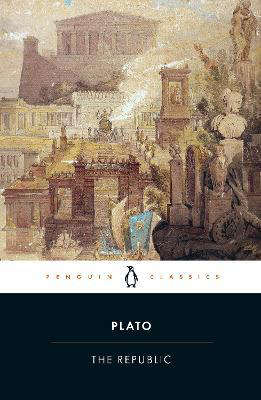
First, Plato’s Republic . It’s a maddening and magnificent work. For instance, Socrates is deeply concerned with the dangers involved in all kinds of mimetic art, of storytelling, of things that represent other things. But at the same time, he himself makes extensive use of stories, myths, allegories, things that represent other things. The most famous example of this is the allegory of the cave. It’s such an odd story; even just the logistics of what you’re supposed to be imagining are a bit tricky to get your head around at first. And it’s so baffling. Why are the prisoners chained up? Why are these other people carrying around models of animals, or whatever, on sticks? What’s going on here? And yet the vision it offers of what moral growth is—becoming unshackled, being at first half-blind, clambering upwards, striving towards the light even when you have no idea yet what you’re even striving towards—that vision is so moving. Plato’s conception of morality as something fundamentally real and independent of us, the idea that knowledge of the good is something difficult and perhaps never properly achieved, and that this knowledge should be understood not in terms of propositions grasped but rather something more like perception or direct acquaintance—these ideas have been central influences for me.
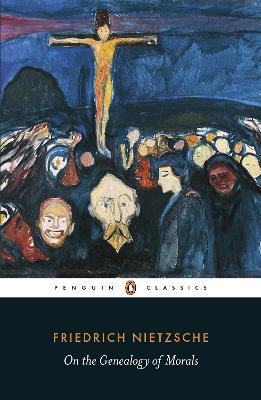
And then Nietzsche’s Genealogy of Morality. With Plato, we had the image of the good as the sun: something transcendental, simple, radiant, otherworldly, pure. With Nietzsche, we get dragged back down to earth—indeed, all the way back underground. There’s a very strange passage in the Genealogy in which Nietzsche calls on a volunteer from the audience to come and look down into an “underground workshop”; we’re then given a sort of Socratic dialogue in which Nietzsche questions the volunteer—whom he names “Mr Rash and Curious”—about what he can see in this dark underground place. The allusions to Plato’s cave in this passage are unmistakable. But what we’re seeing here is a very different kind of picture of morality than that given by Socrates. Mr Rash and Curious reports that he sees that “ideals are being fabricated”—moral values are being constructed out of human (all too human) materials. This is a much darker and uglier picture, a sort of inversion of Plato’s story. In this way, then, Nietzsche stands as an antagonistic figure in relation to my own account of what value is. But at the same time, I share his sense of wanting to do justice to the messy concrete reality of the objects of our philosophical investigation, and to the humanness of morality. (After all, even Plato says that the philosopher must eventually go back down into the cave…)
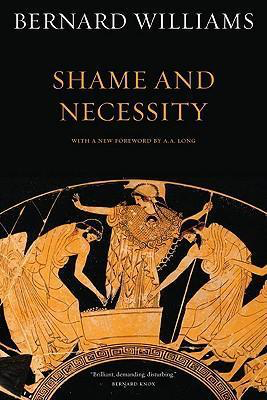
Third, something by Bernard Williams, perhaps Shame and Necessity . Williams was of course very influenced by Nietzsche, and this book is a great example of his own virtuosic take on thinking about contemporary morality through an illuminating historical lens. In one sense, it’s a book about (primarily pre-Socratic) ancient Greek ethical thought, especially as it is revealed in tragedy. But this investigation is also partly supposed to be a way of helping us to understand ourselves , and our own ethical thought, more clearly. It’s sometimes said that Greek ethical thought is very alien to our own. Williams is excellent at showing how, actually, this mode of thought is deeply familiar to us—and that what’s really alien, in a way, is our contemporary moral-philosophical self-conception. We’ve misunderstood ourselves somehow, what we really think, what we really value.
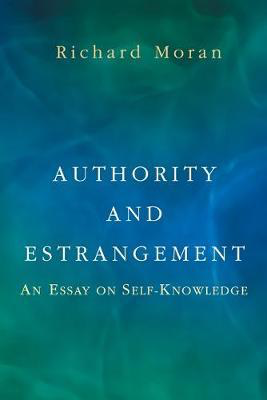
Next, Richard Moran’s Authority and Estrangement . As I’ve mentioned, it was the book that made me realize I had to abandon my own anti-realism about value. But this isn’t what the book is trying to do, and it should be read on its own terms, in which regard it is certainly also outstanding. Moran is excellent at unravelling and dissolving all kinds of tempting, but ultimately confused, pictures of what mindedness is. These tempting pictures typically involve the idea that the knowledge you have of your own mind is more or less the same sort of thing as the knowledge you might have of someone else’s mind, or indeed of some other part of the external world. What Moran is able to bring into view are certain crucial asymmetries between first- and third-personal thought about the mind—the way in which thought about your own mind takes a fundamentally different form to thought about the mind of another. What this allowed me to see was that my own erstwhile anti-realism only really made sense within the third-personal mode of thought, and that this wasn’t sufficient as a way of thinking about what mindedness is like from the inside—which is to say from the perspective that constitutes a mind <em>as</em>a mind in the first place. It was a really magical moment of realizing that I’d somehow misunderstood, misconstrued, something that should have been perfectly familiar—namely, what it’s actually like to be on the inside of your own head.
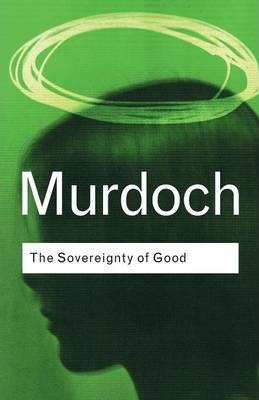
Finally, it has to be Iris Murdoch. The Sovereignty of Good is a peculiar little book, and I have to admit I don’t always fully understand everything that she says, both here and in her other writings. But somehow the things she’s grappling with always resonate powerfully for me. She’s trying to understand the good as something real and radiant, the object of our free striving, but also to understand the human being, the creature who must attempt this striving, as genuinely human, as something material, something earthly. In this regard, I see Murdoch as perhaps my most philosophically kindred spirit.

ABOUT THE INTERVIEWER
Richard Marshall is biding his time.
Buy his second book here or his first book here to keep him biding!
End Time series: the themes
Huw Price's Flickering Shadows series.
Steven DeLay's Finding meaning series
NEW: Joseph Mitterer's The Beyond of Philosophy serialised